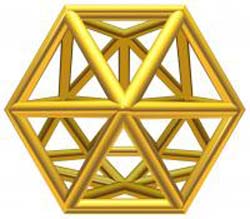If computers could create a society, what kind of world would they make? Thanks to the work of an ambitious project that adds a whole new meaning to the phrase, ‘computer society’, in which millions of software agents will potentially evolve their own culture, we could be about to find out.
With funding from the European Commission’s Future and Emerging Technologies (FET) initiative of the IST programme, five European research institutes are collaborating on the NEW TIES project
Researchers at Indiana University School of Medicine have taken a step toward understanding the genetics that make people more susceptible to the loss of hearing as they age.
In a study of 50 pairs of fraternal twins with hearing loss, the scientists uncovered evidence linking the hearing loss to a particular region of DNA that previously was tied to a hereditary form of progressive deafness that begins much earlier in life.
The work is believed to be the first geno

Carbon fullerenes now have metallic cousins, ‘hollow golden cages’
Scientists have uncovered a class of gold atom clusters that are the first known metallic hollow equivalents of the famous hollow carbon fullerenes known as buckyballs.
The evidence for what their discoverers call “hollow golden cages” appeared today in the online early edition of the Proceedings of the National Academy of Sciences.
The fullerene is made up of a sphere of 60 carbon (C) atoms; gol
Study holds promise for susceptibility test
Cell and animal studies conducted jointly by scientists at Johns Hopkins, Yale and other institutions have uncovered at least one important contributor to the severe anemia that kills almost half of the 2 million people worldwide who die each year of malaria. The culprit is a protein cells make in response to inflammation called MIF, which appears to suppress red blood cell production in people whose red blood cells already are infec
Deep observations of two X-ray bright clusters of galaxies with ESA’s XMM-Newton satellite allowed a group of international astronomers to measure their chemical composition with an unprecedented accuracy. Knowing the chemical composition of galaxy clusters is of crucial importance to understanding the origin of chemical elements in the Universe.
Clusters, or conglomerates, of galaxies are the largest objects in the Universe. By looking at them through optical telescopes it is possible t
Proposed alloy could ’open the door’ in the search for promising electric superconductors
After an exhaustive data search for new compounds, researchers at Duke University’s Pratt School of Engineering have discovered a theoretical “metal sandwich” that is expected to be a good superconductor. Superconductive materials have no resistance to the flow of electric current.
The new lithium monoboride (LiB) compound is a “binary alloy” consisting of two laye